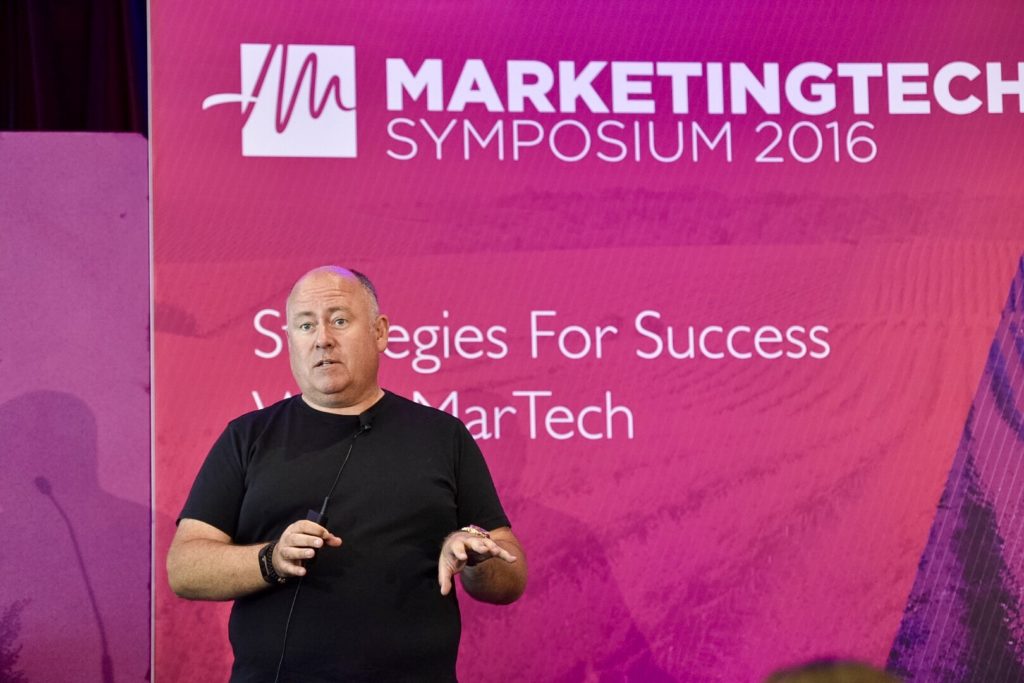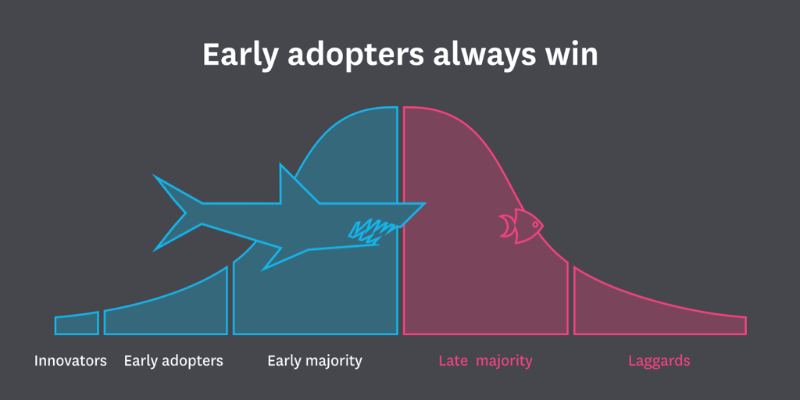
READING TIME: 5 MINUTES
The marketing funnel is obsolete and marketers who don’t realise this are kidding themselves, according to Andy Lark, former CMO of Commonwealth Bank and accounting software firm Xero.

Speaking at the 2016 Marketing Technology Symposium, Lark sounded the death knell for the traditional customer journey which was first referenced in 1898. He said: “There are very few funnels out there that I can see working right now. People, particularly those with enterprise computing, they think there’s a funnel. Let me tell you, I go talk to their customers. The customer’s like, ‘No, not really. I was talking to a friend at golf. Then I Googled it and invited the competitor in for a meeting on Monday. They’re like, ‘My God, where’s the funnel in that? You need to attend two webinars, open four newsletters and go to a customer conference. You’ve completely not adhered to our funnel dynamic. It’s unacceptable.’”
And the customer funnel isn’t the only marketing theory Lark called bullshit on. He also pointed to the technology adoption curve. He said: “It is the biggest load of bollocks ever created in marketing. It doesn’t actually exist. The model was created over 20 years ago, so it definitely doesn’t exist in the current construct. It looks a lot more like this. There’s a big shark eating a little fish in there. The reason that happens, the reason it doesn’t exist, is just how quickly change occurs.”

Lark cited the disruption of several industries including the global speaker business where long-established players such as Bose and Sonos were eclipsed by Amazon when it took out a whopping 51% share of the market in one year. Another example referenced was the online dating business which saw the likes of eHarmony and RSVP flattened by Tinder with one fell swoop. Of course, it wouldn’t be a marketing industry presentation without mention of Pokemon Go which Lark noted wiped out Angry Birds and other online games in the space of hours. He said: “If all those prior transitions I showed you took between three and 12 months to obliterate all existing players in the market, these guys took 13 hours. $200 million of revenue in their first month of operation.”
Lark’s point was that businesses in today’s fast-paced market no longer have the luxury of time. They need to change and they need to do it fast. This, according to Lark, is the biggest problem they face by far. “The real problem is that fundamentally we are not good at change,” he said.
Referencing a Harvard study that found around 97% of people who face a life-changing health event had been told in the 12 months prior they needed to make some alterations to their lifestyle, Lark noted that most people choose death over change. This inertia is plaguing today’s businesses at a time when change needs to be embraced and actioned more quickly than ever. Lark said: “We choose death over change, and then we wonder why our businesses don’t embrace digital technology.”
The problem starts with the fact “we are all over the shop”.
“We’re running around frantically figuring out how to deploy all this technology,” he said. “Most of the leads we generate we actually can’t close. Most of our sales reps don’t achieve quota. Most of our boards have no marketers on them so there’s no one at the board table who even vaguely understands what we do. It’s just a trainwreck, and it doesn’t get any better.”
Putting technology to work for today’s businesses
The businesses currently succeeding against these odds are, according to Lark, the ones that do not see digital as a neighbour of marketing. “They don’t view digital as a strategy that a digital team or an agency undertakes. Digital is fundamentally integral to the product, to the offering, to the business,” he said.
Smart CMOs are utilising technology to better improve their marketing processes but the really smart CMO is thinking about using tech to make their salesforce obsolete. By doing this, large portions of the marketing budget will be freed up and Lark is clear on where exactly these funds should be invested.
From the approximately $1 trillion spent on marketing globally, around 50% goes to ad spend with only 1% dedicated to technology. Lark said: “You’re frickin’ mad. We should be spending 20-30% on technology because that is where you derive the productivity and efficiency.”
Another area that is sorely lacking when it comes to investment is attribution. Lark said: “I’d sit with marketers and I’d go, ‘You’re spending $100-150m on media. You want to put about $2-3m into really good attribution. I’m talking world-class attribution. You’ll get another $10-20m in value.’” Their response, according to Lark, is a reluctance to make such an investment which he says is “just insane”.
The next wave
Waves of innovation, change and technological advancement aren’t stopping anytime soon and as such, Lark believes the great marketers will largely be technologists because “these waves are unstoppable”.
By Lark’s estimation, it takes about 12 years for a wave of technology to make its way through marketing and become an accepted function. Google, for example, is often seen as an overnight sensation yet the tech giant has been chipping away for more than a decade to reach the percentage of marketing and advertising spend it has today.
As these waves continue to wash over the industry and society at large, Lark, like many, says it is impossible to see too far into the future particularly given the driving force of innovation means a system redesigned “barely comprehends the next logical step”.
“You imagine 20 years after the birth of the automobile, if I said to you, ‘Everyone’s going to own a car. You’ll all have a car,’ you would have looked at me and gone, ‘Yeah, he’s a sharp futurist type dude.’ If I’d said to you, ‘And you will never buy furniture like you used to. You’ll drive to a big store, walk around the warehouse, get your furniture in boxes, put it in your car, drive it home and assemble it,’ you would be like, ‘You’re a nut job. There’s no way anyone would do that.’.”
About Mark Abay - Content Director, Ashton Media
Mark is Content Director at Ashton Media. It's his job to create interesting and engaging conference programs that stretch the thinking of our attendees. Mark works closely with our industry advisors to ensure the conference content is aligned with the needs and interests of our audiences.

